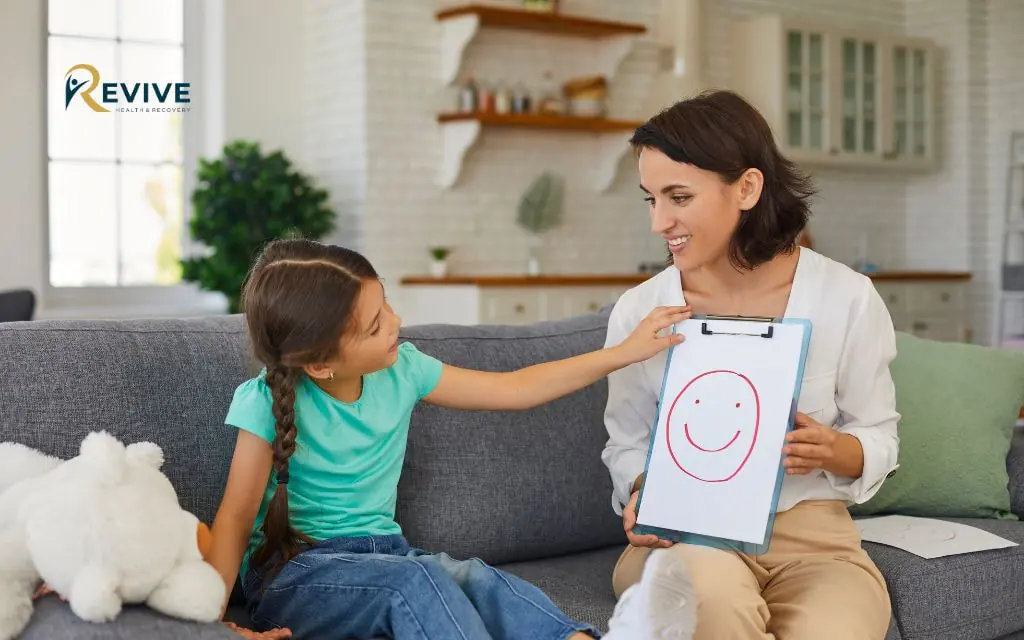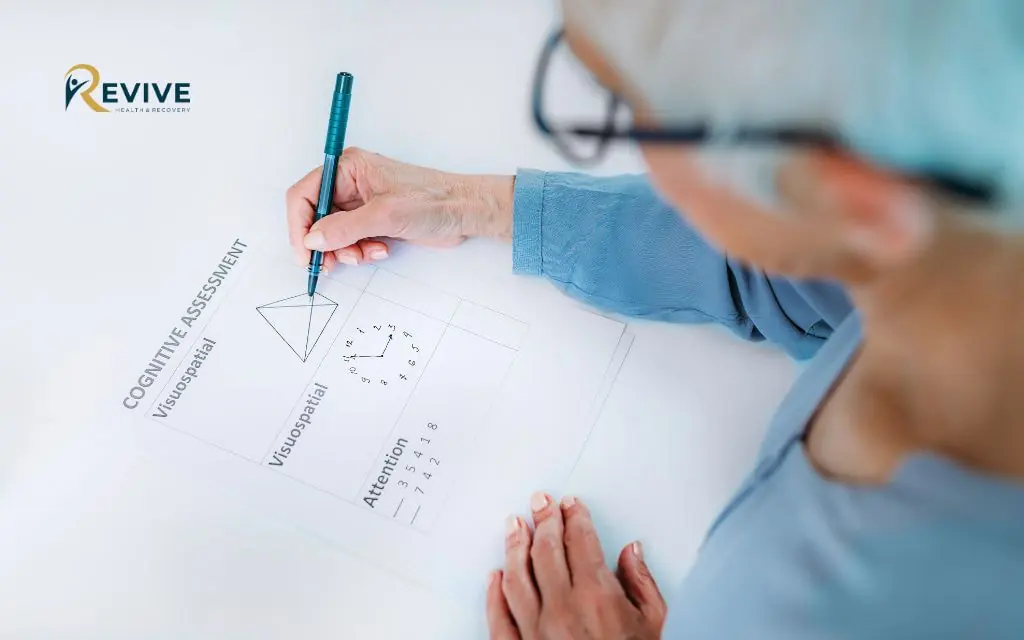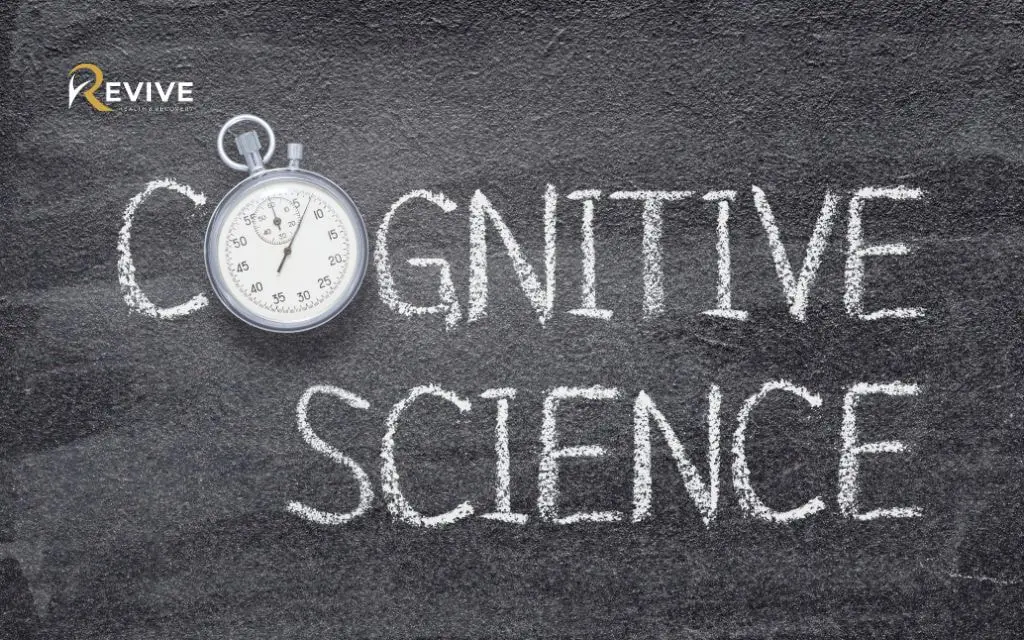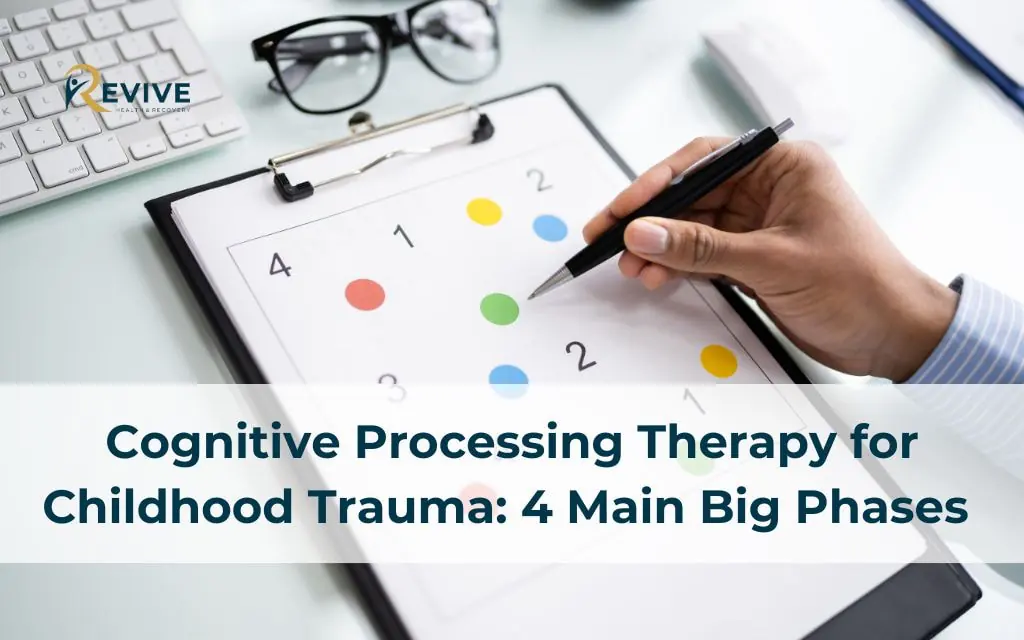Cognitive Processing Therapy for childhood trauma has emerged as a powerful, evidence-based approach to addressing trauma-related disorders, including PTSD. Developed by Dr. Patricia Resick, this structured therapy helps survivors reframe distressing memories and break free from harmful thought patterns formed during traumatic experiences.
But how does CPT work, and why is it considered one of the most effective treatments for childhood trauma? Understanding its key phases and knowing where to find specialized care can be life-changing for survivors seeking healing. If you’re searching for real solutions, keep reading this, Revive & Health Recovery will help you to explore how this therapy can make a difference.
How Does It Work in Cognitive Processing Therapy for Childhood Trauma?
The Core Principles of CPT
Childhood trauma often creates distorted belief systems that persist long after the traumatic events, contributing to conditions like PTSD. Survivors frequently develop “stuck points” – negative thoughts about themselves, others, and the world – such as “I am unworthy of love” or “I cannot trust anyone.” These beliefs served as protection during trauma but become harmful barriers to health and connection in adulthood.
CPT is one of therapy for childhood trauma that works by identifying these maladaptive thought patterns and systematically examining their validity and usefulness. How does cognitive processing therapy work for childhood trauma? The therapy helps survivors recognize how trauma has shaped their perceptions and beliefs.

Through structured exercises and therapeutic conversations, individuals learn to challenge self-blame, guilt, and distorted perceptions that maintain distress. This cognitive restructuring process creates space for developing new, balanced perspectives that promote healing and growth.
Application of CPT in Treating Childhood Trauma
When applied to childhood trauma, CPT adapts to address the unique challenges faced by those who experienced trauma during developmental years. The therapy recognizes that childhood trauma often disrupts fundamental beliefs about safety, trust, and self-worth.
Therapeutic goals include:
- Processing traumatic memories without being overwhelmed by them
- Reducing avoidance behaviors that maintain trauma symptoms
- Challenging maladaptive beliefs developed during or after trauma
- Developing skills to evaluate thoughts more accurately
- Building healthier perspectives on self, others, and the world
CPT typically follows a structured format of 12 sessions, available in both individual and group therapy settings. The protocol maintains consistency while allowing therapists to address the specific needs of childhood trauma survivors. Many experts consider it the best therapy for childhood trauma due to its structured approach and evidence-based foundation.
CPT vs. Cognitive Behavioral Therapy (CBT)
| Aspect | Cognitive Processing Therapy (CPT) | Cognitive Behavioral Therapy (CBT) |
| Focus | Specifically targets trauma-related thoughts and beliefs | Addresses a wide range of mental health concerns |
| Structure | Follows a specific 12-session protocol with defined phases | Varies in length and structure based on presenting issues |
| Written Narratives | Often includes written trauma accounts | May not include written components |
| Target Symptoms | Directly addresses PTSD symptoms and trauma-related beliefs | Targets diverse symptoms from depression to anxiety disorders |
| Effectiveness for Childhood Trauma | Shown to be highly effective for processing childhood trauma memories | Effective for many issues but may need modification for complex trauma |
For childhood trauma survivors, Cognitive Processing Therapy for Childhood Trauma offers specialized intervention focused on the specific challenges of trauma recovery. While standard behavioral cognitive therapy provides valuable tools for many mental health concerns, CPT’s trauma-specific approach addresses the core elements of PTSD and complex trauma responses.
4 Phases of CPT Therapy for Childhood Trauma
Phase 1: Assessment & Education
The therapy begins with a comprehensive assessment of trauma history and current symptoms. Therapists work to understand the specific impact of childhood trauma on the individual’s functioning and belief systems. Education forms a critical component of this phase, helping survivors understand how trauma affects the brain and behavior.
Clients learn about the relationship between thoughts, feelings, and behaviors, creating a foundation for the therapeutic work ahead. This knowledge helps normalize trauma responses and reduces self-blame for symptoms. By understanding the mechanisms of trauma, survivors gain perspective on their experiences and begin to separate their identity from their trauma responses. The International Society for Traumatic Stress Studies recognizes this educational component as essential for effective trauma treatment.
Phase 2: Cognitive Restructuring
The core work of CPT happens during cognitive restructuring. Clients learn to identify “stuck points” – the negative, rigid beliefs that developed following trauma. These often include distorted thoughts about responsibility, safety, trust, power, esteem, and intimacy.
The therapist introduces structured worksheets that help clients examine the evidence for and against these beliefs. Through Socratic questioning and guided discovery, survivors learn to challenge thoughts like “I should have prevented the abuse” or “I am damaged forever.” This process creates cognitive flexibility, allowing for more balanced and realistic perspectives to emerge. Many reviews of CPT for childhood trauma highlight this phase as particularly transformative for survivors.

Phase 3: Processing Trauma
With cognitive tools established, clients work through targeted trauma themes including safety, trust, power/control, esteem, and intimacy. These fundamental areas often sustain the most damage from childhood trauma. Unlike some trauma therapy techniques, Cognitive Processing Therapy for Childhood Trauma does not require detailed recounting of traumatic events.
Instead, the focus remains on identifying how the trauma impacted beliefs within each theme. Clients practice applying cognitive restructuring skills to challenging situations and memories, gradually developing mastery in recognizing and challenging unhelpful thoughts. This phase creates significant shifts in perspective and emotional processing. For those seeking childhood abuse treatment, this phase provides critical tools for processing painful experiences without re-traumatization.
Phase 4: Consolidation & Moving Forward
The final phase focuses on integrating new skills and insights into daily life. Clients review their progress, noting changes in thoughts, feelings, and behaviors. They identify remaining challenges and develop strategies for ongoing growth. The therapist helps the client prepare for potential setbacks and create plans for maintaining progress.
This phase emphasizes building resilience rather than eliminating all symptoms. Clients recognize their capacity to manage difficult emotions and thoughts without being overwhelmed. The therapy concludes with a focus on post-traumatic growth and creating meaningful future goals beyond trauma recovery. The benefits of CPT for childhood trauma become increasingly apparent during this integration phase.
Benefits of CPT for Childhood Trauma Survivors
Reduction in PTSD Symptoms
Research consistently demonstrates that CPT significantly reduces core PTSD symptoms in childhood trauma survivors. After completing the therapy protocol, many clients report:
- Decreased frequency and intensity of intrusive memories and flashbacks
- Reduced hypervigilance and startle responses
- Improved sleep quality with fewer trauma-related nightmares
- Diminished emotional and physical reactions to trauma reminders
These symptom improvements often persist and even continue to strengthen during follow-up assessments months after therapy completion, indicating lasting neurological changes. Benefits of CPT for childhood trauma survivors extend beyond symptom reduction to fundamental improvements in quality of life.
Improved Emotional Regulation
Childhood trauma often disrupts normal emotional development, leaving survivors struggling with emotional regulation. CPT helps rebuild these essential skills by:
- Increasing awareness of emotional responses and their triggers
- Developing the ability to name and identify complex emotional states
- Creating space between emotional reactions and behavioral responses
- Building tolerance for uncomfortable emotions without avoidance
- Fostering proportionate emotional responses to current situations
These improvements allow survivors to experience the full range of emotions without being overwhelmed, enriching relationships and quality of life. For those seeking mental health support for trauma-related challenges, these emotional regulation skills provide lasting value.
Better Social Functioning
The impact of CPT extends beyond symptom reduction to create meaningful improvements in relationships and social engagement. Survivors often report:
- Increased capacity for trust in appropriate circumstances
- Enhanced communication skills, particularly around boundaries and needs
- Greater comfort in social situations previously avoided due to trauma triggers
- Improved ability to maintain healthy relationships with appropriate give-and-take
- Reduced conflict in family and work relationships
These social gains create positive feedback loops that further reinforce recovery and connection. How does CPT work for childhood trauma in social contexts? By addressing core beliefs about others that were distorted by traumatic experiences.
Empowerment and Resilience
Perhaps the most profound benefit of CPT involves the transformation of self-perception and agency. Clients frequently develop:
- A strengthened sense of personal efficacy and control
- Balanced perspective on past trauma that acknowledges both pain and survival
- Recognition of personal strengths that developed through adversity
- Capacity to create meaning from traumatic experiences
- Confidence in handling future challenges without being defined by trauma
This sense of empowerment represents a fundamental shift from feeling defined by trauma to recognizing oneself as a whole person with experiences that include, but are not limited to, trauma. Cognitive processing therapy for childhood trauma in Denver emphasizes this transformative aspect of recovery.
Integrating CPT with Other Therapeutic Approaches
Trauma-Focused Cognitive Behavioral Therapy (TF-CBT)
For younger children or adolescents with childhood trauma, TF-CBT provides a complementary approach that can prepare them for later CPT work. This trauma-focused therapy:
- Incorporates parents and caregivers into the therapy process
- Uses age-appropriate techniques to teach cognitive skills
- Provides trauma-specific interventions within a cognitive framework
- Creates foundations for more advanced cognitive work in CPT
Many therapists use TF-CBT components alongside CPT to address the developmental needs of younger clients while maintaining the structured approach that makes CPT effective. PTSD treatment options for children often begin with these developmentally appropriate approaches.

Eye Movement Desensitization and Reprocessing (EMDR)
EMDR uses bilateral stimulation (typically eye movements) to help process traumatic memories. This approach can work effectively alongside CPT by:
- Providing additional tools for processing traumatic memories that remain emotionally charged
- Addressing somatic aspects of trauma that may be less accessible through cognitive approaches
- Offering an alternative processing method when clients struggle with verbal expression
- Targeting specific traumatic memories after CPT has established cognitive foundations
Some therapists integrate EMDR techniques during specific phases of CPT to enhance memory processing while maintaining the cognitive restructuring focus. For complex childhood abuse recovery, this combined approach can be particularly effective.
Play and Art Therapy
For childhood trauma survivors who struggle with verbal expression—particularly younger clients or those with complex trauma—creative approaches offer valuable additions to CPT:
- Art therapy provides visual representation of trauma beliefs and emotions
- Play therapy allows for metaphorical exploration of trauma themes
- Sand tray therapy creates concrete representations of abstract concepts
- Movement therapy addresses trauma held in the body
These modalities can supplement CPT’s cognitive focus by engaging different brain regions and providing alternative channels for expression and processing. Denver mental health services (location-specific entity) often incorporate these creative approaches into trauma treatment.
Considerations for Individuals and Families
Choosing a Therapist
Finding the right therapist significantly impacts CPT effectiveness. When seeking help for childhood trauma, consider:
- Specialized training in CPT specifically for childhood trauma
- Experience working with your particular type of trauma
- Credentials and licensure appropriate for trauma work
- Comfort and trust in the therapeutic relationship
- Understanding of developmental aspects of childhood trauma
- Willingness to adapt the protocol to individual needs while maintaining fidelity
Take time to interview potential therapists about their experience and approach before committing to therapy. The therapeutic relationship itself serves as a crucial element in trauma recovery. Finding a CPT therapist in Denver requires careful consideration of these factors.
Family Involvement
The role of family in CPT varies based on the client’s age and circumstances:
- For children and adolescents, caregiver involvement provides essential support
- Adult survivors may benefit from selective family participation in certain sessions
- Family education about trauma responses helps create a supportive recovery environment
- Setting appropriate boundaries with family members may constitute an important therapy goal
- Family therapy can complement individual CPT work when family dynamics impact recovery
Therapists work with clients to determine the optimal level of family involvement while ensuring the therapy space remains safe and focused on the survivor’s needs. How to start CPT for childhood trauma often includes initial family sessions to build a supportive recovery environment.
Cultural Sensitivity
Trauma experiences and healing paths exist within cultural contexts. Effective CPT implementation requires:
- Recognition of how culture shapes trauma interpretations and expressions
- Awareness of historical and collective trauma affecting certain communities
- Adaptation of techniques to respect cultural values and communication styles
- Integration of culturally-specific healing practices when appropriate
- Understanding of how discrimination or marginalization compounds trauma effects
At Revive Health Recovery, we prioritize culturally responsive approaches that honor each client’s background and community context. PTSD treatment approaches must be culturally informed to be maximally effective.
Accessing Services & Additional Resources for CPT in Colorado
Support Groups
Support groups provide valuable connections during and after CPT treatment:
- Adult Survivors of Childhood Trauma group (meets weekly at Revive Health Recovery)
- Parents Supporting Children Through Trauma Recovery (monthly)
- Online Colorado Trauma Survivors Network (24/7 moderated forum)
- Specific groups for particular trauma types (domestic violence, sexual abuse, medical trauma)
These groups complement individual therapy by reducing isolation and providing peer support from others who understand trauma’s impact. Find CPT therapist for childhood trauma in Denver through these supportive networks.
Educational Materials
Knowledge empowers trauma recovery. Resources include:
- “Reclaiming Your Life After Trauma” workbook (available at Revive Health Recovery)
- CPT Mobile App with between-session worksheets and skills practice
- Webinar series on childhood trauma recovery (accessible on our website)
- Library of trauma-informed books available for client checkout
- Video resources explaining trauma’s impact on the developing brain
Educational materials help clients reinforce therapy concepts and share information with supportive family members. Understanding the cost of CPT for childhood trauma in Denver becomes easier with these resources that explain insurance coverage and financial options.
Crisis Intervention
During trauma processing, additional support may be needed:
- Colorado Crisis Services: 1-844-493-8255 (24/7 hotline)
- Mobile crisis response teams throughout Denver metro area
- Walk-in crisis centers in Denver, Aurora, and Boulder
- Crisis text line: Text HOME to 741741
- Emergency psychiatric services at major hospitals
All CPT clients receive a personalized crisis plan to use between sessions if needed. This support ensures safety throughout the treatment process.
Local Mental Health Providers
Denver offers several options for CPT-trained therapists, with Revive Health Recovery providing comprehensive trauma services including:
- Specialized childhood trauma assessment
- Individual and group Cognitive Processing Therapy for Childhood Trauma formats
- Family support services
- Coordination with other medical and mental health providers
- Long-term continuity of care through all recovery stages
Our multidisciplinary team includes psychologists, therapists, and psychiatric providers with extensive trauma training. As a leading provider of PTSD treatment, we maintain the highest standards of care.
Telehealth Options
For those unable to access in-person services due to location, mobility issues, or scheduling constraints:
- HIPAA-compliant video sessions available through secure platforms
- Telehealth CPT groups connecting rural Colorado residents
- Modified CPT protocols optimized for virtual delivery
- Electronic worksheets and materials for remote participants
- Technical support for those new to telehealth
Research shows comparable outcomes between telehealth and in-person CPT, making this a viable option for many clients. These flexible options expand access to effective PTSD treatment.
Information on Coverage for CPT Under Colorado Health Plans & Sliding Scale Fees
- Most major insurance plans in Colorado (Anthem, Kaiser Permanente, United Healthcare, Cigna) cover CPT sessions with proper diagnosis
- Medicaid covers CPT therapy with authorized providers
- Medicare covers CPT when delivered by qualified mental health professionals
- Colorado’s parity laws require insurance coverage for mental health treatment comparable to physical health
- Veterans may access coverage through VA benefits or community care programs
- Sliding scale fees available at Revive Health Recovery based on income verification
- Grant funding available for qualified clients through Colorado Trauma Recovery Initiative
- Victim compensation funds may apply for trauma resulting from criminal acts
- Payment plans and assistance with insurance navigation provided by our client services team
FAQs About Cognitive Processing Therapy for Childhood Trauma
Is CPT the best therapy for childhood trauma?
CPT is best therapy for childhood trauma that ranks among the most effective trauma treatments, but effectiveness depends on individual factors including age, trauma type, and personal preferences. At Revive Health Recovery, we determine if Cognitive Processing Therapy for Childhood Trauma is right for your specific circumstances through comprehensive assessment.
How long does CPT take to work?
The standard protocol is 12 weekly sessions. Most clients see improvement by sessions 6-8, with 50-80% no longer meeting PTSD criteria after completion. Complex childhood trauma may require 16-20 sessions or maintenance therapy.
Does insurance cover CPT for PTSD treatment?
Most Colorado insurance plans cover CPT with proper diagnosis. Our team assists with verification and authorization to minimize barriers. We offer sliding scale options and out-of-network documentation for those without coverage.
Can CPT help with childhood abuse recovery?
Yes, CPT can help with childhood abuse recovery. CPT directly targets beliefs about safety, trust, power, esteem, and intimacy – areas profoundly affected by abuse. By addressing cognitive distortions like self-blame and shame, CPT helps survivors rebuild healthy self-perception and relationships.
Are there CPT therapists for children in Denver?
Yes. At Revive Health Recovery, our specialists adapt CPT for different developmental stages, incorporating play therapy for younger children (7-12) while maintaining CPT’s cognitive structure. Family involvement is essential, with parent education and school coordination when appropriate.
Conclusion
Childhood trauma creates lasting impacts but recovery from childhood trauma remains possible at any age. Cognitive Processing Therapy for Childhood Trauma offers a structured, evidence-based path toward healing that addresses both the symptoms and underlying beliefs that maintain trauma responses. Through CPT, survivors learn to recognize how trauma has shaped their perceptions and develop new, balanced perspectives that foster growth and connection.
The journey through trauma recovery requires courage, support, and expert guidance. At Revive Health Recovery in Denver, our specialized trauma team provides comprehensive CPT services tailored to each client’s unique needs and circumstances. We combine clinical expertise with genuine compassion to create a healing environment where transformation becomes possible.
If childhood trauma continues to impact your life or the life of someone you love, know that effective help exists. The structured approach of CPT has helped thousands reclaim their lives from trauma’s shadow. Contact Revive Health Recovery today to learn more about how CPT might serve your healing journey. Our team stands ready to answer your questions and guide you toward the support you deserve.



